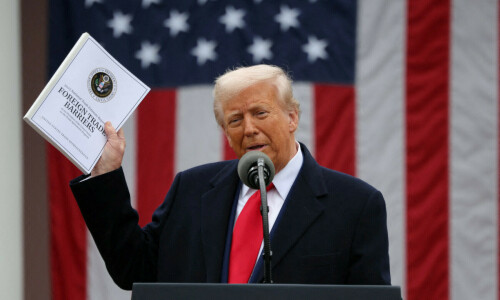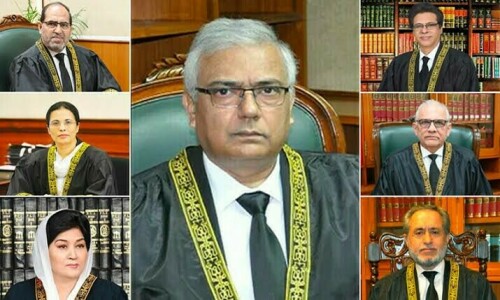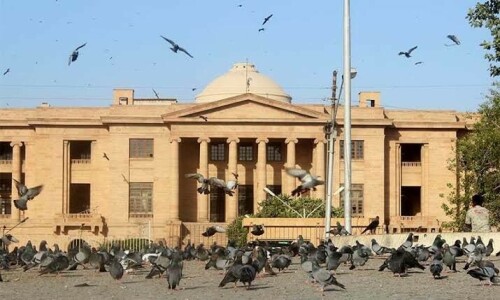
KHYBER: The Landi Kotal Bazaar has reported high sales of traditional caps, which are worn by residents with Eid clothes.
Sellers offer a variety of caps with varying prices to customers, mostly youth and children, while elders prefer those with modest designs.
Iqbal Khan, a cap seller in Landi Kotal Bazaar, told Dawn that his sales had multiplied as Eidul Fitr drew closer.
“Parents and children consider their Eid preparations incomplete without new caps,” he said.
He said he sold caps from Bangladesh, China, Karachi, Dir, Charsadda, and Peshawar, but the youth preferred white ones from Charsadda and Peshawar.
“People mostly buy colourful caps for their children aged below 15,” he said.
The shopkeeper said handmade white caps from Dir were mostly liked by tribesmen over the age of 40.
He said handmade caps cost more than others.
“Bangladeshi, Chinese and Peshawari caps liked by youth because they’re lightweight, mostly machine-made, and have affordable prices,” he said.
Javed Khan, 24, said he inherited the cap business from his father, who migrated to Landi Kotal from Bajaur in 2002.
“My business picks up momentum days ahead of Eidul Fitr and Eidul Azha. In other months, it is business as usual for me,” he said.
The shopkeeper said the caps made in Wahid Garhi and Bakhshu Pul areas of Peshawar had become popular with the youth due to their light weight and fine finishing.
“Wearing a cap is our tradition. Any festive occasion is considered incomplete without the addition of a new cap to the youth’s wardrobe,” he said.
Mr Javed, however, regretted that the demand for traditional handmade white caps from Dir was gradually declining due to the “influx” of both imported and lightweight caps with colour and design variations.
People in Jamrud and Bara areas of Khyber tribal district said the demand for caps in the two tehsils was not as high as it was in Landi Kotal.
They said the tradition of wearing caps was fast fading away, with only the elderly strictly following it.
During its ‘occupation’ of Bara tehsil from 2005 to 2011, a local militant organisation, Lashkar-i-Islam, had made it mandatory for men to wear caps. However, the restriction eased after the 2012 elimination of the outfit in a military operation.
Turab Ali, a social activist, insisted that as tribal traditions were fast losing their appeal for local youth, they mostly wore caps or lungi to weddings and cultural events only.
Sajid Ali Kukikhel of Jamrud said tribal youth were more influenced by new fashion trends, while some among them insisted that caps “ruined” their hairstyles.
“Now, caps are mostly worn by youngsters for offering prayers. However, elders put on caps as a tradition,” he said.
Published in Dawn, April 10th, 2024














































